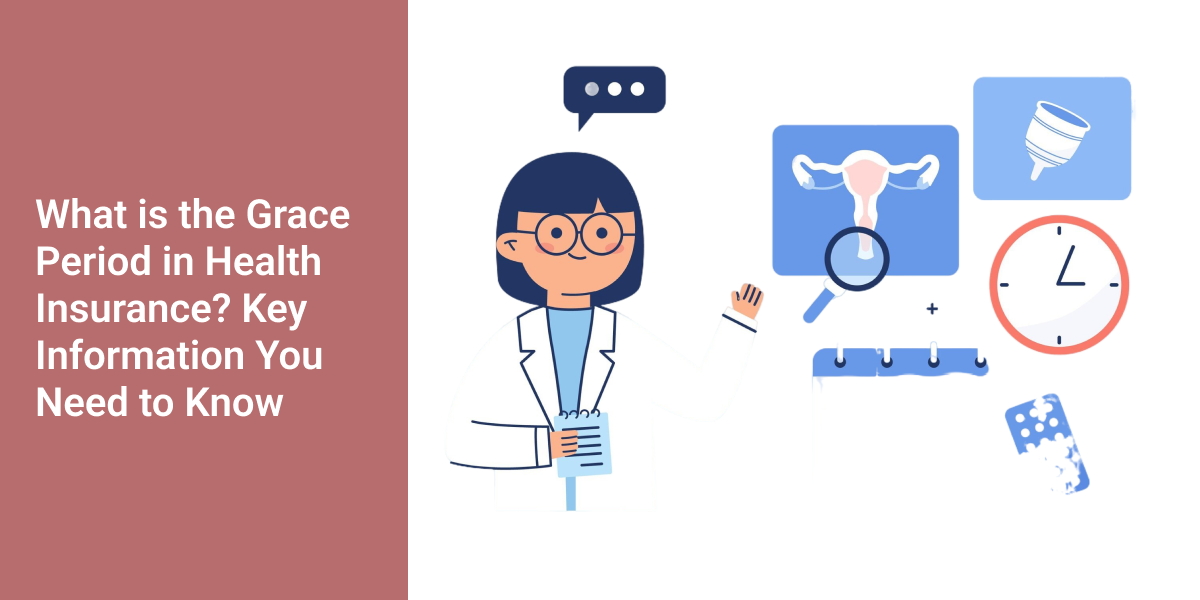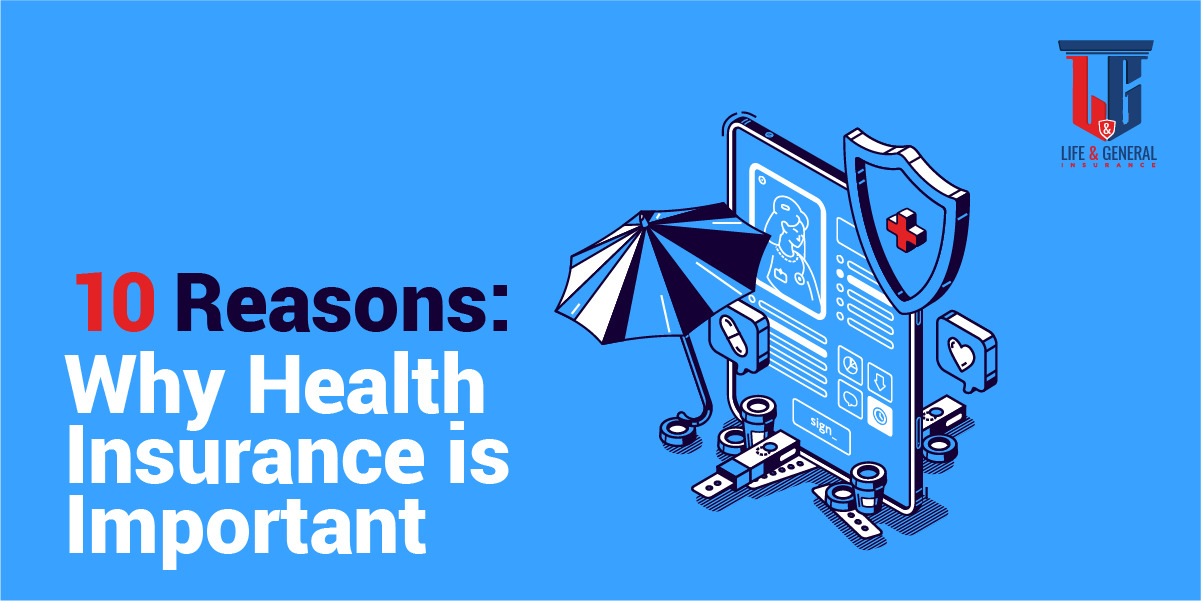Table of Contents
The grace period in health insurance acts as a safety net for policyholders, allowing them to maintain active coverage and continue their coverage despite missing a premium payment. This grace period typically ranges from 30 to 90 days, determined by the insurance provider and specific policy terms. During this grace period, policyholders have the opportunity and time to settle their overdue premiums without the risk of losing their health insurance benefits. This benefit acts as a buffer, preventing immediate coverage termination due to financial difficulties or oversights, thus supporting individuals and families reliant on health insurance for essential medical services.
While the grace period is a benefit, it is important to understand the details of the grace period in full clarity to ensure continuous health insurance coverage. It is important to recognize that while the grace period permits delayed premium payments, any claims submitted during this time may not be processed until the payment is received. Furthermore, the terms and conditions of the grace period can differ significantly among various insurance plans. Thus, it is crucial for policyholders to acquaint themselves with their policy specifics, enabling informed decisions and averting potential coverage lapses to safeguard their health and financial stability.
What is the Grace Period?
A grace period in health insurance is a stipulated time frame during which policyholders can pay their overdue premiums without facing immediate cancellation of their coverage. This grace period typically lasts between 30 to 90 days, and this period acts as a crucial buffer, making sure that individuals and families do not lose their health insurance benefits due to missed payments. The grace period allows for a temporary lapse in payment while maintaining the policyholder’s coverage, providing a safety net during times of financial difficulty or administrative oversight.
Often with age, the health insurance premiums are high and if not planned well, this may lead to financial burden or stress for the policyholders. To help policyholders, during these difficult times, insurance companies often delay the processing of claims until the overdue premium is paid. This means that while coverage remains technically active, access to insurance benefits might be temporarily restricted. Familiarizing yourself with the specific terms of your policy’s grace period can help you avoid unintended gaps in coverage and ensure continuous protection for your healthcare needs.
Related Blog: Does Health Insurance Premium Increase with Age? Understanding the Factors
How Does Grace Period in Health Insurance Work?
The grace period in health insurance is an angle of consideration from the policy providers to policyholders, offering them a set amount of time to catch up on missed premium payments without losing their coverage. This period is especially useful in various situations where financial constraints or other challenges might lead to delayed payments.
One common scenario is during periods of financial hardship, such as job loss or unexpected expenses. If a policyholder suddenly finds themselves unable to pay their premium on time, the grace period allows them to maintain their health insurance while they arrange their finances. This can be crucial for ensuring continuous access to necessary medical treatments and medications during a financially unstable period.
Another situation where the grace period proves beneficial is during administrative errors or oversight. For instance, if a policyholder forgets to pay their premium due to a busy schedule or an error in automatic payment systems, the grace period provides a window to rectify the mistake without the immediate risk of losing coverage. This safety net helps prevent lapses in coverage that could result in significant medical bills or loss of access to healthcare services.
Overall, the grace period is designed to offer flexibility and security to policyholders, ensuring that temporary setbacks do not lead to long-term consequences on their health insurance coverage.
Key Features of Grace Periods
There are some key features related to the grace period that can help policyholders get a better idea of how the benefit works. Grace periods in health insurance provide a critical safety net, allowing policyholders extra time to pay overdue premiums without losing their coverage. These periods are designed to offer flexibility and security, ensuring that temporary financial setbacks do not result in immediate loss of essential health insurance benefits.
Here are some key features of grace periods:
- Duration: Typically lasts between 30 to 90 days, depending on the insurance provider and policy terms. An extension can also be requested on special demands.
- Coverage Continuity: Maintains active coverage during the grace period, preventing immediate termination of benefits.
- Claims Processing: Insurers may delay processing claims until the overdue premium is paid.
- Policy-Specific Terms: The exact length and conditions of the grace period can vary between different insurance plans.
- Financial Flexibility: Provides a buffer period for policyholders experiencing financial difficulties or administrative oversights.
- Regulatory Requirements: Often mandated by state or federal regulations to protect consumers.
- Communication: Insurers typically notify policyholders of the start and end of the grace period, offering reminders to make payments.
Benefits of Grace Period in Health Insurance
The grace period offered by health insurance is an invaluable feature that ensures policyholders have additional time to make premium payments without losing their coverage due to any reason. This provision is particularly beneficial in maintaining uninterrupted access to healthcare services during financial or administrative challenges.
Here are the key benefits of grace periods:
- Continuous Coverage: Ensures policyholders remain covered and can access healthcare services even if they miss a premium payment deadline.
- Financial Flexibility: Provides extra time to arrange finances or premium money, especially during unexpected economic hardships.
- Prevention of Coverage Lapses: Reduces the risk of a lapse (ending of a policy due to nonpayment) in coverage that could lead to significant out-of-pocket medical expenses.
- Access to Necessary Care: Guarantees that policyholders can continue receiving necessary medical treatments and medications without interruption.
- Protection from Administrative Errors: Offers a buffer period to correct any payment oversights or issues with automatic payment systems.
- Reduced Stress: Alleviates the immediate pressure to make a payment, allowing policyholders to manage their finances more effectively.
- Compliance with Regulations: Meets state or federal requirements designed to protect consumers’ rights and access to healthcare.
- Notification and Reminders: Often includes reminders from insurers about upcoming deadlines, helping policyholders stay informed and proactive about their payments.
Renewing Your Health Insurance Plans During the Grace Period
Renewing your health insurance plan during the grace period is an opportunity to ensure continuous coverage without interruptions. This time frame allows policyholders to catch up on missed premium payments and renew their plans without facing the immediate risk of cancellation. By taking advantage of the grace period, individuals can maintain their access to essential healthcare policies, and plans while avoiding the financial strain of unexpected medical expenses.
During the grace period, it is important to review and estimate the terms of your health insurance policy and understand any specific conditions related to the renewal of your policy. Insurers often provide notifications and reminders to help policyholders stay on track with their payments. Renewing your plan within this specific window not only secures your coverage but also reinforces your commitment to managing your health and financial well-being effectively.
Proactively addressing any outstanding payments during the grace period can prevent future complications and ensure that your health insurance remains active. This approach provides peace of mind, knowing that you and your family are protected against unforeseen medical emergencies.
Disadvantages of Not Renewing Your Health Insurance Policy on Time
Disadvantages of Not Renewing Your Health Insurance Policy on Time
Failing to renew your health insurance policy on time can have significant consequences for policyholders, affecting both your financial stability and access to healthcare. Missing the renewal deadline can also lead to the termination of your coverage, leaving you vulnerable to high out-of-pocket medical expenses and gaps in your healthcare protection in case of emergencies.
Here are the key disadvantages of not renewing your health insurance policy on time:
- Coverage Termination: Immediate loss of health insurance benefits, leaving you without coverage.
- High Out-of-Pocket Costs: Potentially facing substantial medical bills without the financial protection of insurance.
- Gaps in Care: Disruption in access to ongoing medical treatments, medications, and regular check-ups.
- Requalification Hassles: May need to go through the entire application process again, which could involve medical underwriting or waiting periods.
- Pre-Existing Condition Exclusions: New policies might exclude coverage for pre-existing conditions, which were previously covered.
- Financial Penalties: Some jurisdictions may impose fines or penalties for not maintaining continuous health insurance coverage.
- Loss of Benefits: Any accumulated benefits, such as no-claim bonuses or loyalty rewards, might be forfeited.
- Increased Premiums: Future premiums might be higher, especially if there are changes in your health status during the gap period.
- Stress and Uncertainty: The anxiety of being uninsured can impact mental health and overall well-being.
- Legal Complications: In some cases, lacking health insurance can complicate legal matters, such as when applying for certain types of visas or residency status.
Is Grace Period and Waiting Period in Health Insurance the Same?
While both the grace period and waiting period are important terms in health insurance, they serve different purposes and apply in different contexts when it comes to policies. Understanding the difference between the two can help policyholders navigate their health insurance plans more effectively and avoid potential pitfalls.
Here is a detailed comparison of the grace period and waiting period:
| Feature | Grace Period | Waiting Period |
| Definition | A timeframe during which policyholders can pay overdue premiums without losing coverage. | A set period after the policy starts during which certain benefits are not available. |
| Purpose | To provide a safety net and ensure continuous coverage despite missed payments. | To limit coverage for specific conditions or treatments for a period after policy inception. |
| Duration | Typically 30 to 90 days, depending on the insurer and policy terms. | Varies widely, from a few days to several years, depending on the condition or treatment. |
| When It Applies | Applies when a premium payment is missed but within the grace period. | Applies at the beginning of a new policy or when adding specific benefits. |
| Impact on Coverage | Coverage remains active, but claims might be delayed until the premium is paid. | Coverage for specific conditions or treatments is not available until the waiting period ends. |
| Common Usage | Used to prevent policy lapses due to missed premium payments. | Used to manage risk for insurers and prevent immediate high-cost claims. |
| Examples | A policyholder has 30 days to pay a missed premium without losing coverage. | A policy has a 12-month waiting period for maternity benefits, meaning no claims for maternity will be covered during the first year. |
| Regulatory Aspect | Often regulated to protect consumer rights and ensure fairness. | Often detailed in policy terms to manage insurer risk and avoid adverse selection. |
| Financial Impact | Allows policyholders to avoid immediate out-of-pocket costs for overdue premiums. | Prevents insurers from covering immediate, high-cost claims right after policy purchase. |
| Policyholder Action | Pay overdue premiums within the grace period to maintain coverage. | Wait until the waiting period ends before claiming benefits for specific conditions. |
How Grace Periods Can Affect Your Claims?
Grace periods though beneficial for the customers play a significant role in how claims are processed and paid. Understanding these effects is crucial for policyholders to manage their healthcare expenses effectively and ensure timely access to medical services.
During the grace period, while your insurance coverage remains technically active, there are specific implications for claims processing:
1. Delayed Claims Processing:
Insurance companies may hold off on processing claims until all the overdue premiums are paid. This means that even though you are covered during the grace period, claims submitted during this time might not be paid until your account is all paid for its dues.
2. Potential Denial of Claims:
If premiums remain unpaid beyond the grace period and the policy lapses, any claims submitted during that period may be denied by the healthcare insurance provider. This could result in unexpected out-of-pocket expenses for medical treatments or services that would have otherwise been covered.
3. Notification and Communication:
Insurers typically communicate clearly about the start and end of the grace period, as well as any implications for claims processing. It is essential for policyholders to stay informed about these timelines and ensure timely payment of premiums to avoid disruptions in coverage and claims payment.
By maintaining awareness of how grace periods affect claims, policyholders can take proactive steps to manage their insurance responsibilities and ensure continuous coverage for their healthcare needs. This includes promptly addressing any missed payments and staying in communication with their insurance provider to avoid potential claim denials or delays.
FAQs About Grace Period in Health Insurance
In order to better help you understand the details of the grace period, here are some frequently asked questions.
Q1. What happens if you miss paying your health insurance premium during the grace period?
If you miss paying your health insurance premium during the grace period, your coverage remains active for the duration of that period. However, insurers typically delay processing any claims until the overdue premium is paid. If you fail to pay within the grace period, your policy may lapse, leading to a loss of coverage. This could result in denied claims for medical services received during the grace period or afterwards if the policy lapses.
Q2. Can you renew your health insurance policy during the grace period?
Yes, you can typically renew your health insurance policy during the grace period. Renewing during this time allows you to maintain continuous coverage without experiencing a gap, provided you pay any outstanding premiums. It IS important to check the specific terms of your policy regarding renewal procedures and deadlines to ensure uninterrupted coverage.
Q3. Does the grace period apply to all types of health insurance plans?
Grace periods are commonly included in health insurance plans, but the specifics can vary. They are more prevalent in individual and family health insurance plans, as well as employer-sponsored group plans. Government-sponsored plans like Medicare and Medicaid may have different rules regarding grace periods, so it is important and essential to review your policy documents or contact your insurer for clarification.
Q4. Do all health insurance companies offer a grace period?
Not all health insurance companies offer a grace period, but it is a standard practice among many insurers. The availability and duration of the grace period can vary depending on the insurance provider and the specific terms of your policy. It is advisable to confirm the existence of a grace period when comparing health insurance plans to ensure it aligns with your needs and preferences.
Q5. How does the grace period affect the continuity of coverage?
The grace period helps maintain continuity of coverage by providing policyholders with extra time to pay overdue premiums without immediate termination of their insurance benefits. This period acts as a buffer against unintentional lapses in coverage due to financial difficulties or administrative oversights. By utilizing the grace period effectively, policyholders can ensure uninterrupted access to healthcare services and avoid potential gaps that could lead to denied claims or higher out-of-pocket costs.
Conclusion
Grace periods are a safety net that allows individuals and families some extra time to manage their premium payments during difficult times. By extending the due date for premiums, the grace period helps minimize gaps in coverage, protecting against sudden financial burdens from unexpected medical expenses.
Policyholders should know the specific terms of their insurance plans regarding grace periods, including the duration, any conditions or limitations, and how it affects claims processing. This knowledge can help people make informed decisions about their healthcare coverage. Being proactive in managing premium payments and addressing missed deadlines promptly can help ensure continuous access to healthcare services without interruptions.
The grace period reflects the idea of balancing consumer protection with insurer requirements, offering flexibility while ensuring the sustainability of health insurance coverage. By using this feature effectively, policyholders can navigate their health insurance needs with greater confidence and security.
Inquire About Health Insurance Now!
If you are considering health insurance or buying a policy then it is important to look for a grace period in the policy. Apart from that if you have questions about your current coverage, now is the time to seek information and clarity from your insurance provider. Whether you are looking to understand the specifics of grace periods, comparing different plans, or needing guidance on renewals, reaching out to an insurance provider or broker can provide valuable insights.
You can also reach out to our experts at LNG to get help in understanding the complexities of policy documents. They can also help you navigate the complexities of health insurance policies, ensuring you make informed decisions that best suit your healthcare needs and financial circumstances. Do not hesitate to inquire today and secure the coverage that protects your health and well-being.




